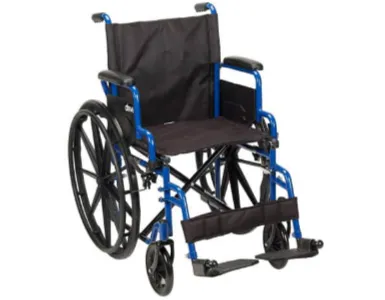Are you wondering, “What’s the role of stress management in preventing back pain?”
When discussing my treatment plan with my doctor, I was surprised to learn that reducing chronic stress can benefit my back health.
So, I’m here to explain the connection between the two and give you some tips to relieve stress-related lower back pain.
Just keep reading.
Table of Contents
Key Takeaways
- Stress can affect your physical and mental health, causing chronic inflammation, pain, and depression.
- Stress management can play a major role in preventing back discomfort or relieving chronic pain syndromes.
- Consult a specialist to determine if stress is the main reason for your back pain.
What Causes Back Pain?
Before getting to the role of stress management, let’s talk about what causes back pain and how it’s related to stress.

Do you know how common back problems are? A study shows up to 23% of the world’s adult population suffers from chronic pain. (1)
Trauma, injury, poor posture, and muscle spasms are the most common causes. Repetitive physical activities can also strain muscles and ligaments, resulting in discomfort.
But back pain may result from more serious conditions, such as herniated discs, arthritis, and degenerative disc disease.
When none of these apply to your situation, the culprit can be something you don’t expect—mental stress. How does it happen? Let’s find out!
Does Stress Cause Back Pain?
Whenever you’re under pressure, your body releases chemicals and hormones to help you cope with the stressful situation.
The effects on your physical health could be:
1. Pain.
Chronic stress can lead to pain, and pain can lead to chronic anxiety.
Muscle tension. When you’re under stress, you tense the muscles in your neck and shoulders without realizing it.
Altered perception of pain. As specialists from WebMD explain,
“Negative feelings like depression, anxiety, stress, and anger can increase the body’s sensitivity to pain.” (2)
2. Poor posture.
Anxiety makes you hunch your shoulders, which can strain your muscles and lead to acute pain.

3. Restricted blood flow.
Stress can construct your vessels, reducing blood flow to your back and leading to lower back pain.
According to studies, chronic stress can also lead to cortisol dysfunction, increasing your body’s inflammatory response. Stress is a risk factor for some diseases. (3)
Moreover, I tend to overeat when I’m under a lot of stress at work. And when you gain a few extra pounds, that puts extra pressure on your spine and can contribute to back pain.
But what’s the role of stress management in preventing back pain? Let’s find out!
Stress Management and Back Pain
By managing high levels of stress, you can keep your immune system strong, which reduces the risk of chronic inflammation.
Less anxiety also ensures you don’t tense your muscles involuntarily, decreasing muscle strain, alleviating neck pain, and allowing you to maintain proper posture.
Moreover, stress-free is better for your heart, blood pressure, and blood glucose levels. It can relieve depressive symptoms, improve your quality of life, and help you maintain a healthy weight.
But how can you tell if your discomfort results from mental/physical stress?
Symptoms of Back Pain From Stress
Unfortunately, it’s difficult to tell whether your pain symptoms are connected to your anxiety or caused by an underlying disorder. But keep these things in mind:
Onset. Acute pain that starts suddenly is likely due to trauma, injury, or another medical condition. The gradual onset of pain can be related to muscle tension.
Other symptoms. If you don’t have other symptoms, such as numbness or moving doesn’t make your pain worse, it might be stress-related.
How long does the pain last? Pain that comes and goes is likely related to your stress levels, while constant pain requires urgent medical care.
Does it get better with stress management techniques? Take a deep breath and try to relax as much as possible. If the pain goes down, the problem might be stress.
Now, I have three amazing stress management tips to prevent back pain.
5 Tips for Stress Management to Prevent Back Pain
While stress can cause pain, I recommend you consult your healthcare provider, even for non-specified back pain, to rule out an urgent medical condition.
#1 Healthy Diet
Eating a balanced diet kills two birds with one stone. Healthy food gives you more energy, strengthens your immune system, and helps your body cope with stressful situations.

It’s also great for weight loss, eliminating the extra pounds that pressure your spine and improving your posture.
#2 Exercise
Physical activity is an excellent way to manage stress. According to Mayo Clinic, it can stimulate the production of endorphins – the hormone that makes you feel good. (4)

Moreover, stretching exercises are suitable for relieving back pain because they increase flexibility, strengthen the muscles, and reduce the risk of future injuries.
#3 Do Something You Enjoy
Sometimes, it’s hard to relax in your busy daily schedule. But it’s vital to do something you enjoy to relax after a stressful day. You can read books, paint, watch movies, or listen to soothing music.
#4 Try Relaxation Techniques
Deep breathing, mindful meditation, yoga, aromatherapy, and guided imagery are the best relaxation techniques for stress relief.
Check this video for some suitable breathing techniques to get you started:
#5 Consult a Specialist
An underlying medical condition can contribute to stress levels, so it’s always an excellent idea to consult your healthcare provider. When considering treatment options, one might wonder, “Does Medicare cover braces?”
I had problems with anxiety for years before I was diagnosed with hypothyroidism. And my symptoms improved once I got my hormones under control.
FAQs
1. How do you stop back pain from stress?
You can try relaxation techniques, exercises, yoga, and removing potential stressors from your daily life.
2. How long does stress back pain last?
Stress-related back pain can last from a few days to a few weeks. It should improve as soon as you get your stress under control.
3. What is the fastest way to relieve back pain?
Stretching exercises, pain medication, hot/cold treatment, and a massage are the fastest ways to relieve back pain.
Conclusion
Psychological factors can cause chronic back pain or make an existing condition worse. And being under stress for a prolonged time is bad for your well-being.
So, stress management can improve quality of life, reduce chronic pain, and decrease the risk of developing common health problems. Take it seriously!
What do you think about the relationship between pain and stress? What’s the most effective treatment for back pain? Share your tips in the comment section.

Resources:
1. Casiano VE, De NK. Back Pain [Internet]. PubMed. Treasure Island (FL): StatPearls Publishing; 2020. Available from: https://www.ncbi.nlm.nih.gov/books/NBK538173/
2. https://www.facebook.com/WebMD. 11 Tips for Living With Chronic Pain [Internet]. WebMD. [cited 2023 Jul 10]. Available from: https://www.webmd.com/pain-management/11-tips-for-living-with-chronic-pain
3. Hannibal KE, Bishop MD. Chronic Stress, Cortisol Dysfunction, and Pain: A Psychoneuroendocrine Rationale for Stress Management in Pain Rehabilitation. Physical Therapy [Internet]. 2014;94:1816–25. Available from: https://www.ncbi.nlm.nih.gov/pmc/articles/PMC4263906/
4. Mayo Clinic Staff. Exercise and stress: Get moving to manage stress [Internet]. Mayo Clinic. 2020. Available from: https://www.mayoclinic.org/healthy-lifestyle/stress-management/in-depth/exercise-and-stress/art-20044469






It is just plain crazy how much stress (even the tiny bit of stress over time) can mess your entire body and mind up! I am so glad that you’re sharing tips to help others. We all have stressors, perhaps your tips will help others relieve that back panic caused by the stress.
I will pass this onto my husband. He has a lot of back pain thanks to the military.
I have some recurring back pain and I find that physio and stretching are really key for me in keeping it manageable .
I definitely tense up my muscles when stressed and feel it later in my shoulders and upper back when I realize it and try to relax them.
Stress can cause plenty of problems. This may be why my husband has back pain.
I have noticed that my back and rheumatoid arthritis/fibro is always worse when I am stressed out. I try not to stress but sometimes its hard not to.
The section on cures and prevention is equally enlightening. I particularly appreciate your emphasis on mastering the art of back care, exercising with proper posture, personalizing ergonomic workstations, and lifting techniques
I think a healthy diet benefits in so many ways. Many of those ways we can’t see, like stress management, but you do feel better and have more clarity when you’re eating right.
I could see how not better managing our stress could lead to worse back pain, these were some good tips and things to look out for!
Back pain can be so unbearable and frustrating. It is good to have a system of helping to reduce and prevent these issues.
Back pain can be awful. Exercise has surely helped me out over the years
Stress is such a huge factor in so many issues today, but did not realize it can lead to back pain too. thank you for those tips ..and reminders to reduce stress and back pain too